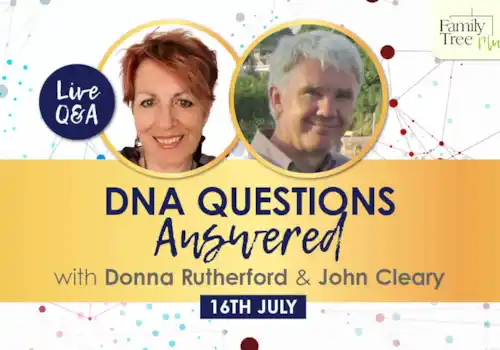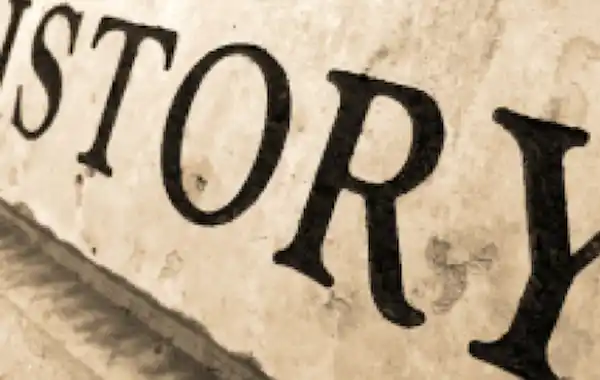In his latest blog, Paul Chiddicks asks - is there more to family history than just names and dates?
I remember when I first started researching my family history many years ago, I felt like a bit of a 'collector' really. But instead of stamps and coins, I was hoarding dates and certificates.
It was only once I had exhausted all my lines, exhausted my wife’s lines, the neighbours' lines, work colleagues lines and anybody I remotely knew, that I realised that I actually knew very little about my family, other than a basic time line.
So that set me thinking, what was my actual goal and purpose? Was I just a hoarder or was I a family story teller?
Become your family's story keeper
The trigger point for me was sending an elderly aunt a 20-page family tree report that I had carefully and painstakingly put together. She flicked over a few pages, said it was 'interesting' and put it to one side. It was just a list of 'cold data', it told nothing about the story of our family at all.
 This made me totally re-think my whole approach to my family history and how I was presenting my families story and where we 'fitted in' as a family, in the world that we lived.
This made me totally re-think my whole approach to my family history and how I was presenting my families story and where we 'fitted in' as a family, in the world that we lived.
It’s all about context. Previously I had not considered social, economic and even historical context within my tree; I was solely pre-occupied with getting back as far as possible!
Did I really know the full consequences of a bad harvest to a agricultural labourer? Had I considered how vitally important the weather was to great-granddad's survival and ultimately that of his family?
Did I know the harsh realities of life in a Victorian workhouse, or even a lunatic asylum? Was I aware of the reasons why one would be admitted into one of these institutions?
Was I aware of the various acts of law that would dramatically shape and change my ancestor's life? Of course the answer to all of these questions and many others like them, was NO!
![]() What was day-to-day life like?
What was day-to-day life like?
So it’s important to understand the social, historical and economic climate that our ancestors were living, in as well as the region and landscape.
This will help you get a deeper and better understanding of their day-to-day lives and what affected them, as well as what was important to their daily survival and struggle.
Therefore try to understand trades and occupations better. The census lists our ancestor’s occupation, but do you know what the life of a waterman was like? How many hours did they work? How dangerous was their work? Railways and mines were littered with accidents and incidents, for example.
Consider looking into newspaper reports for your ancestors (QUICK LINK: Using newspapers in family history). These are a much under utilised resource, which can add colour and context to your family's story.
Do you have criminal ancestors? Look at the penal system and the harshness of punishments back then compared to today. In Victorian times it was not unusual to be sentenced to transportation for stealing sheep!
Look to historical records as well, that might tell you about the Industrial Revolution, for example, or the arrival of the railway into your ancestor's town.
Were your ancestors forced to move location to find work? Could this be why they turned up in a totally different village for one of the census years?
Was the trade in which they were employed seasonal? Did they have to move to find additional work in the winter?
Changing times
Look at modern history as well, the advent of the Welfare State and the changes that brought about in recent times. Large slum areas of London were cleared after the Second World War, for example and brand new estates of social housing were built on the fringes of London. Look at how this fits in with your ancestor’s movements.
There are lots of different ways in which you can enrich your own stories, within the broader meaning of 'family history. This will help to tell your ancestor’s story, as well as put them into perspective within their social, economical, and even political positions within their own community.
So look beyond just family history and explore the wider aspect of history itself. Create a broader sense of where your ancestors belonged; that way you will understand them just that little bit more!
By Paul Chiddicks.
Follow Paul on Twitter and his blog.
Researching the names: Chiddicks in Essex; Daniels in Dublin; Keyes in Prittlewell; Wootton in Herefordshire and London; Jack in Scotland, Day in Essex, Kent and Gloucestershire.
QUICK LINK: The top ten sins of a genealogist








 What was day-to-day life like?
What was day-to-day life like?